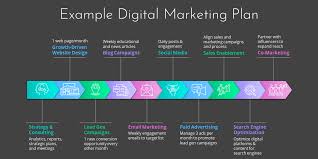The Importance of Equality in Education
Educational equality is a fundamental principle that ensures every individual has access to the same opportunities for learning and personal development, regardless of their background or circumstances. It is essential for creating a fair and just society where everyone has the chance to reach their full potential.
Why Equality in Education Matters
Equality in education is crucial for breaking down barriers and promoting social mobility. When all individuals have equal access to quality education, regardless of factors such as race, gender, socio-economic status, or ability, it helps level the playing field and reduces disparities in opportunities.
Furthermore, educational equality fosters a sense of inclusivity and diversity within schools and communities. It promotes understanding, empathy, and respect among individuals from different backgrounds, leading to a more cohesive and harmonious society.
Challenges to Achieving Educational Equality
Despite the importance of educational equality, there are various challenges that hinder its realization. Factors such as inadequate funding for schools in marginalized communities, lack of access to quality teachers and resources, systemic discrimination, and unequal distribution of educational opportunities pose significant obstacles to achieving equality in education.
Promoting Equality in Education
To promote equality in education, it is essential to address these challenges through targeted policies and initiatives. This includes increasing funding for schools in underserved areas, implementing inclusive curriculum that reflects diverse perspectives, providing professional development for educators on cultural competency and equity issues, and actively working to dismantle systemic barriers that perpetuate inequality.
Additionally, fostering partnerships between schools, communities, government agencies, and non-profit organizations can help create a collaborative approach to advancing educational equality. By working together towards a common goal, we can create a more equitable and inclusive educational system that benefits all individuals.
The Impact of Educational Equality
When we prioritize equality in education, we not only empower individuals to succeed academically but also equip them with the skills and knowledge needed to thrive in an increasingly diverse and interconnected world. By investing in educational equality, we invest in the future of our society by creating opportunities for all individuals to contribute meaningfully to their communities.
Understanding and Addressing Educational Equality: Key Questions and Challenges
- What is educational equality?
- Why is equality in education important?
- What are the challenges to achieving educational equality?
- How can we promote equality in education?
- What impact does educational inequality have on society?
- How does socioeconomic status affect educational opportunities?
- What role does discrimination play in perpetuating educational inequality?
What is educational equality?
Educational equality refers to the principle that every individual should have equal access to quality education and opportunities for learning, regardless of their background, socio-economic status, or other factors. It is about ensuring that all students have the same resources, support, and educational experiences to help them reach their full potential. Educational equality aims to eliminate disparities in access to education and promote fairness and inclusivity within the educational system. By prioritizing educational equality, we strive to create a more just and equitable society where every individual has the chance to succeed and thrive academically.
Why is equality in education important?
Equality in education is crucial because it ensures that every individual, regardless of their background or circumstances, has the same opportunities to learn and grow. By promoting equality in education, we create a more just and inclusive society where everyone can access quality learning experiences and develop their full potential. This not only helps break down barriers and reduce disparities in opportunities but also fosters a sense of community and understanding among individuals from diverse backgrounds. Ultimately, prioritizing equality in education empowers individuals to succeed academically and equips them with the skills needed to contribute meaningfully to society, leading to a more equitable and prosperous future for all.
What are the challenges to achieving educational equality?
Achieving educational equality faces several challenges that impede progress towards a fair and inclusive education system. Inadequate funding for schools in marginalized communities, disparities in access to quality teachers and resources, systemic discrimination based on factors like race, gender, or socio-economic status, and unequal distribution of educational opportunities are significant obstacles. Addressing these challenges requires targeted policies and initiatives to ensure that all individuals have equitable access to quality education. By actively working to dismantle systemic barriers and promote inclusivity in schools and communities, we can move closer to achieving educational equality for all.
How can we promote equality in education?
Promoting equality in education requires a multifaceted approach that addresses various factors contributing to disparities in access and opportunities. To foster equality in education, it is crucial to advocate for equitable funding for schools, ensure inclusive and diverse curriculum that reflects the experiences of all students, provide professional development for educators on cultural competency and equity issues, and actively work to dismantle systemic barriers that perpetuate inequality. Collaboration between schools, communities, government agencies, and non-profit organizations is also essential in creating a unified effort towards achieving educational equality. By implementing these strategies and fostering a culture of inclusivity and fairness within the education system, we can take significant steps towards promoting equality in education for all individuals.
What impact does educational inequality have on society?
Educational inequality has profound implications for society as a whole. When access to quality education is unequal, it perpetuates a cycle of disadvantage and limits opportunities for individuals, particularly those from marginalized communities. This disparity not only widens existing social and economic divides but also hinders overall societal progress and development. Educational inequality can lead to higher rates of poverty, unemployment, and social unrest, ultimately undermining the fabric of a fair and just society. By addressing educational inequality and promoting equal access to education for all, we can create a more equitable and inclusive society where every individual has the chance to thrive and contribute positively to the community.
How does socioeconomic status affect educational opportunities?
Socioeconomic status plays a significant role in shaping educational opportunities for individuals. Students from lower socioeconomic backgrounds often face challenges such as limited access to high-quality schools, resources, and educational support systems. These disparities can result in unequal learning experiences and outcomes, impacting academic performance and future prospects. Additionally, socioeconomic status can influence factors like parental involvement, extracurricular opportunities, and access to enrichment programs, further widening the gap in educational achievement. Addressing these inequalities is crucial in promoting educational equity and ensuring that all students have the chance to succeed regardless of their economic circumstances.
What role does discrimination play in perpetuating educational inequality?
Discrimination plays a significant role in perpetuating educational inequality by creating barriers that limit access to quality education for marginalized groups. When individuals face discrimination based on factors such as race, gender, socio-economic status, or ability, they are often denied equal opportunities in education. Discriminatory practices can manifest in various forms, including unequal funding for schools in underserved communities, biased disciplinary policies that disproportionately affect certain groups, and limited access to resources and support services. By addressing and combating discrimination in all its forms, we can work towards creating a more equitable educational system that provides every individual with the chance to learn and thrive.



